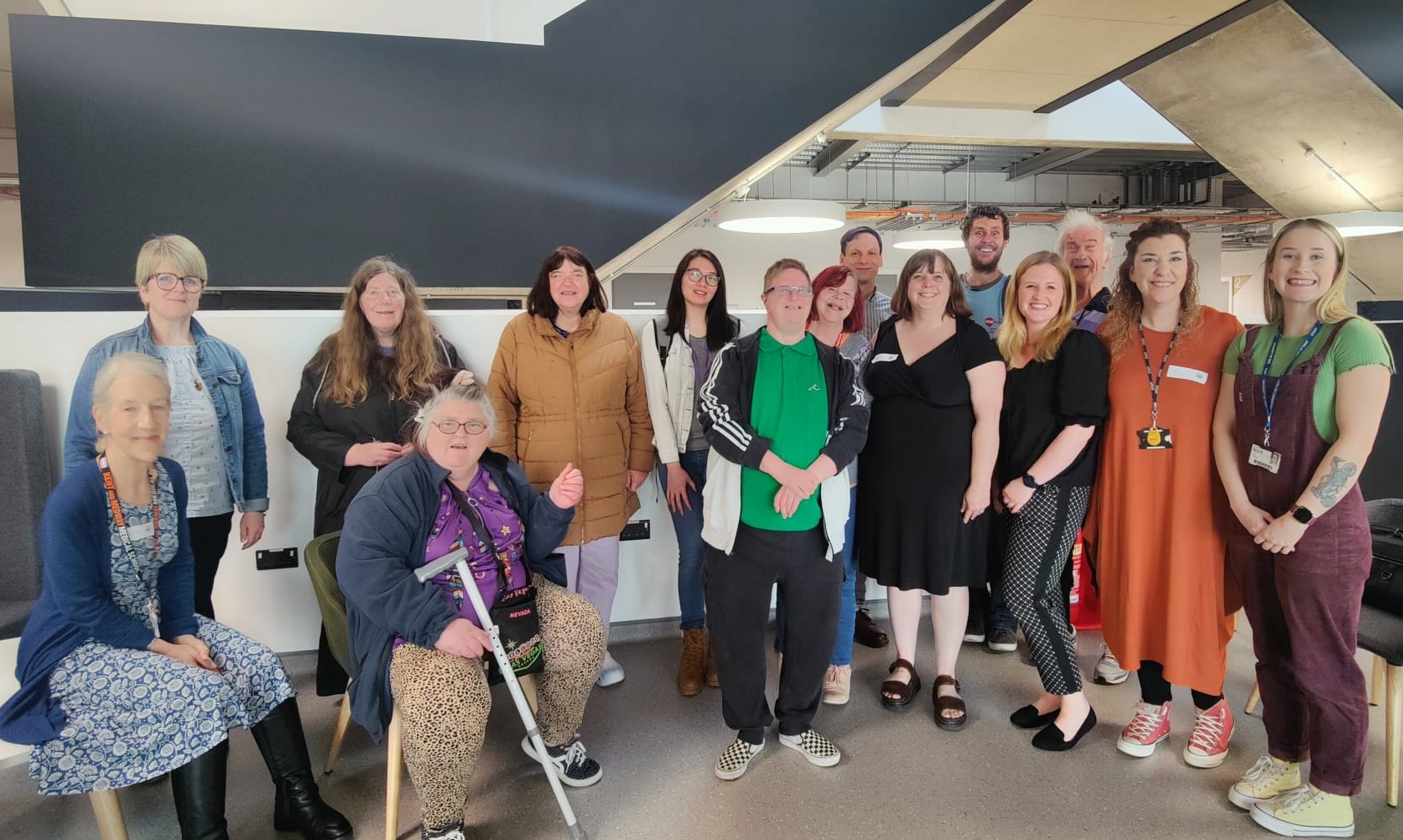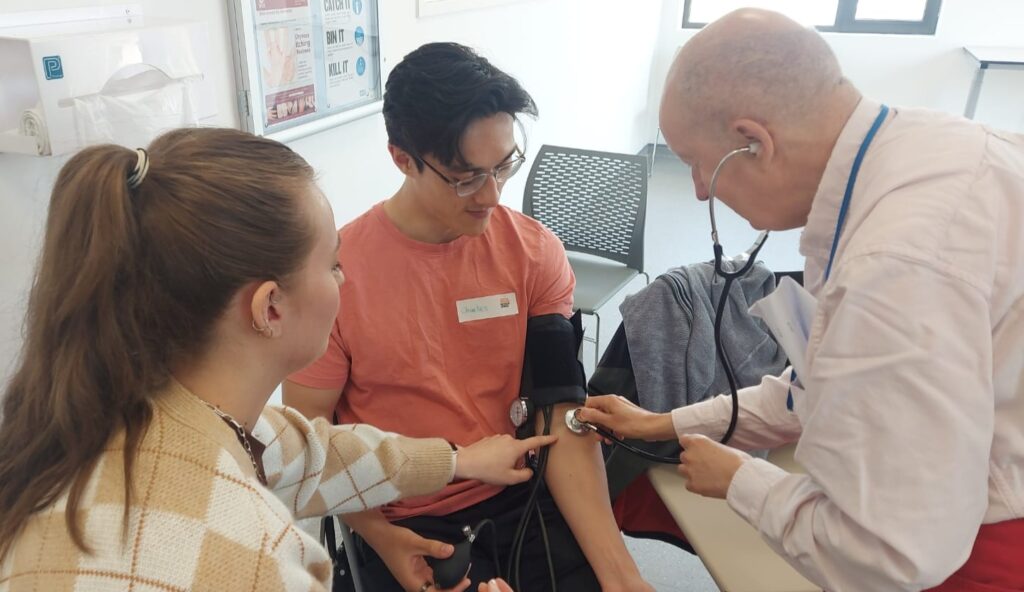
Article written by Cathy Bernal, Senior Lecturer at KMMS
Do You See Me?
This rhetorical question is the theme of Learning Disability Week 2025. This week takes place annually in June, and is led by the campaigning organisation Mencap. For too long, people with a learning disability have been excluded from society, both physically and psychologically, and this year’s endeavour aims to ensure that this population becomes permanently visible and the value that its members contribute to the wider community is recognised.
At KMMS, we have addressed this situation in our teaching since soon after first opening our doors to students. For years, we have worked actively with individuals receiving services from East Kent Mencap, L’Arche Kent and Bemix to deliver a “hands-on” experience for our Year 2 students, in a workshop designed and provided with the aid of members of The Tizard Centre at the University of Kent. Students receive some preparation for this workshop via a lecture, but the bulk of the teaching comprises people with learning disability [LD] talking directly to students about their lives and the challenges they face in accessing healthcare. This seems to have a more profound impact on learning than a lecture might do. Students have said:
“Good to hear everyone’s perspectives on care, they gave advice as well, which is a perspective often ignored”;
“I found it incredibly humbling and eye-opening. Hearing from people who have learning difficulties and how they have experienced doctors has definitely made me appreciate the struggles they can go through,” and
“I thought this was a really important session, so informative and educational”.
KMMS also offers in the first year of the programme a Student Selected Component – a short elective course – on Working Together to Improve Wellbeing for People with Learning Disabilities, and this includes a couple of visits to local day services, as well as the hosting of visitors with LDs to the campus. On both types of occasion, students meet people who talk to them about their lives, the services they receive, and the challenges they face.

In addition to our efforts to make people with LDs visible and active contributors to our programme, KMMS also (with Canterbury Christ Church University) hosts a consultant group of co-teachers (“LOUD”, signifying Learning – Observing – Understanding – Disability) and co-researchers, the remit of which is to monitor and develop the quality and extent of teaching and research in LD across both institutions. LOUD continues to have an important role in what and how is taught and researched, and its collective voice has played an important part in the delivery of curricula.
In addition to this, KMMS encourages students to research directly with people with LD, in order to ensure that their experiences are valued and inform the ways in which they may be recruited and involved in teaching students. Two Year 4 students have just completed research projects in which some of our regular co-teachers were interviewed in order to better understand their lived experiences of teaching. It is hoped that this original research will be published, making KMMS a ground-breaker in amplifying the voices of co-teachers with learning disabilities.
At KMMS, we continue to strive to ensure that people with a learning disability are seen, heard and respected for the intrinsic value they bring to our programme.
Cathy Bernal, Senior Lecturer at KMMS